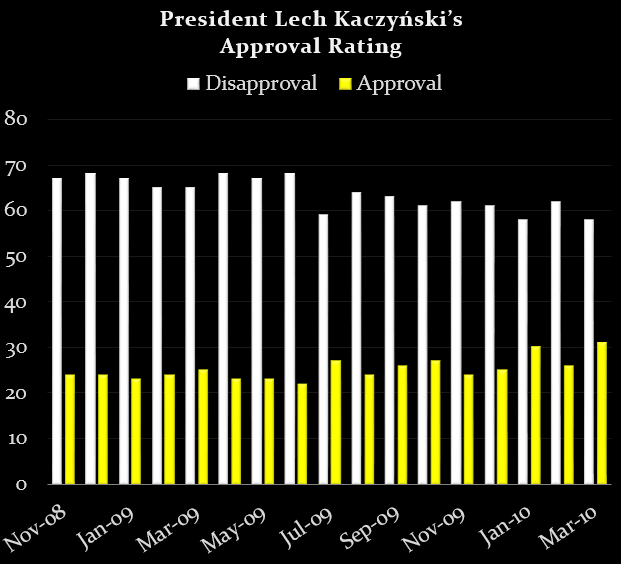
Tylko świnie siedzą w kinie
During the Second World War in occupied Poland there was a saying: “Tylko świnie siedzą w kinie” [Only pigs go to the movies.] The point was to boycott the Nazi propaganda films, which spread the most vulgar and violent forms of antisemitism and glorified the leaders of the Reich. Occasionally the saying has been resurrected since then, usually during the communist era when the state similarly sponsored the production of movies with obvious political objectives.
Have we arrived at a moment when we will need to revive that slogan? I hope not, but the events surrounding the premier of the new film Smoleńsk by Antoni Krause are worrying. I haven’t seen the film yet (it opens to the public this weekend), but I’m not really interested in the cinematographic merits (or lack thereof, if the preliminary reviews are any indication). What bothers me is the fact that this is a state-sponsored production based on an outlandish, paranoid conspiracy theory that has become one of the founding myths of the current regime in Poland. There is no other description for it than “government propaganda.”
It is perfectly OK for filmmakers to produce movies with distinctive points of views, even ones that promote crazy ideas. It is perfectly OK for movies to have an ideological agenda—in fact, many of the best ones have crystal clear messages. And I don’t mind all that much when movies tweak the actual historical record a bit in order to convey some deeper truth.
The problem arises when a film is explicitly promoted by a government that is already using the media, cultural policies, and the educational system to promote its distinctive ideological vision. When artists, filmmakers, writers, journalists or scholars launch their ideas into the public sphere, they should be allowed to rise or fall based on the degree to which they plug into existing concerns or emotions. The problems emerge when centers of power (private or public) get involved in openly promoting a highly divisive message that advances their own partisan cause, under the guise of entertainment. If the US government sponsored a heartwarming Hollywood film about a terminally ill patient who was saved thanks to the Obamacare reforms, it would make me queasy. That’s roughly what has happened with Smoleńsk, with the added problem that the whole undertaking is based on a fantasy and a political vendetta.
The gala opening of Smoleńsk occurred at the Wielki Teatr (Great Theater) in Warsaw, which usually hosts operas and other large-scale spectacles. In attendance was the President, the Prime Minister, and nearly every important politician connected to the ruling Law and Justice Party (PiS). Of course, the actual ruler of Poland, Jarosław Kaczyński, was there, and he expressed his delight with the film.
The basic message is that the 2010 plane crash that killed then-president Lech Kaczyński and almost 100 other Polish dignitaries was an assassination, not an accident. Different versions of that story posit different combinations of conspirators, but Jarosław Kaczyński has repeatedly said that then-prime minister Donald Tusk bears “moral responsibility” (if not direct responsibility), and that Vladimir Putin was directly behind the crime.
Putin is undeniably capable of many vile things, and he has demonstrated a cavalier attitude towards human life. In fact, we Americans are currently witnessing his attempts to influence our presidential elections. But let’s step back a moment to ask the basic question: why would he have wanted to kill Lech Kaczyński in 2010? The Polish president was certainly hostile to Russia, and he had recently expressed support for Georgia’s resistance to Russian territorial claims. But that’s not relevant, because of an often overlooked fact: at the time of his death, Kaczyński was poised to suffer a crushing defeat in his reelection campaign later that year. One month before the catastrophe he was viewed unfavorably by 58% of the population, and favorably by only 31%. Political pollsters call this being “underwater,” and virtually no one recovers from being 27 points submerged. It’s true that this figure was better than then 46 point deficit he had in mid 2009, but by any measure, Lech Kaczyński was recognized by a huge majority of the Polish population as a failed president.

Just to put this in perspective, Hillary Clinton is now underwater by 12 points, and Donald Trump is underwater by 40 points. Or to stick with Poland, when Lech Wałęsa lost the presidency in 1995, he had a popularity deficit of 34 points. And if we look at the potential rivals for the presidency in those elections of 2010, all the leaders of the main opposition party had popularity ratings between 16 and 39 points higher than their unpopularity ratings. In other words, Lech Kaczyński was an extremely unpopular president who was going to face a popular and respected opponent. I suppose anything could have happened during the course of a campaign, but let’s face it: it was a very safe bet that Lech Kaczyński had only a few months left in office. The only thing that saved him from an ignominious and embarrassing loss was the tragedy that took his life.
The events that followed were the second founding of PiS as a political movement. Jarosław Kaczyński elevated the memory of his brother to the ranks of the Polish pantheon of great leaders, even arranging for him to be buried in the crypt of the Wawel castle in Kraków, alongside the medieval Polish kings. More importantly, a legend was built that positioned the PiS movement within a familiar story of Polish martyrdom. When combined with the movement’s other favorite historical moment, the Warsaw Uprising of 1944, the idea of dying for the nation (preferably in a hopeless cause) became the very essence of PiS patriotism. This is crucial to their ideology, because if people are dying for the nation, then the nation is de facto at war. And in times of struggle, there can be no room for the niceties of liberal parliamentary democracy. Unity, discipline, and authority are required to carry the nation through the struggle.
So Smoleńsk is not just another tendentious movie with a blatant ideological agenda. It is part of a much broader and much more dangerous campaign to promote a disturbing historical vision that serves in turn to buttress an authoritarian assault on the fundamental norms of democracy. In the weeks ahead the government is going to move to the next stage in its assault on the independent judiciary (more on that in a future post). As they do so, they will see themselves as carrying on the sacred mission of the martyrs of Smoleńsk.